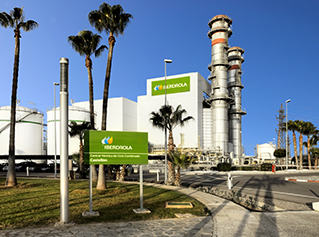This project demonstrates that CO2 produced by combined cycle power plants can serve as a substitute for the chlorinated chemical products now used to eliminate macrofouling (growth of mollusks) caused by power plant cooling systems.
The European Commission has approved financing for Iberdrola Generación’s LIFE+ project called CO2formare. This project is aimed at showing that CO2 from combined cycle plants can be used as an efficient substitute for the chlorinated chemical products that are currently employed to control macrofouling. Six other Spanish partners are also involved in this effort: the company’s engineering division Iberdrola Ingeniería, , The Energy Cluster of the Community of Valencia (Clúster de la Energía de la Comunidad Valenciana), engineering firm Idesa Fabrication, the CETaqua Water Technology Center ( Centro Tecnológico del Agua), Nalco Española and water treatment company Compañía de Tratamiento de Aguas OX-CTA.
Macrofouling refers to the growth of fauna such as mussels in or around the cooling systems of power plants. The larva of these organisms attach to iron or steel structures and cause obstructions in the system, thereby impeding the free flow of water which is necessary for the cooling systems to function properly.
The CO2formare project will not only eliminate the use of chlorinated compounds. It will also reduce the level of CO2 gases from power generation that is released into the atmosphere, as they will partially be diverted for macrofouling. In addition the project includes developing automated larva detection systems and improvements in current systems for storing and dissolving CO2 in water.
CO2formare will be carried out at the Castellón combined cycle plant in eastern Spain, where the effectiveness of CO2 as a macrofouling inhibitor will be tested in order to later roll out this technology at other power generation plants around Europe.
